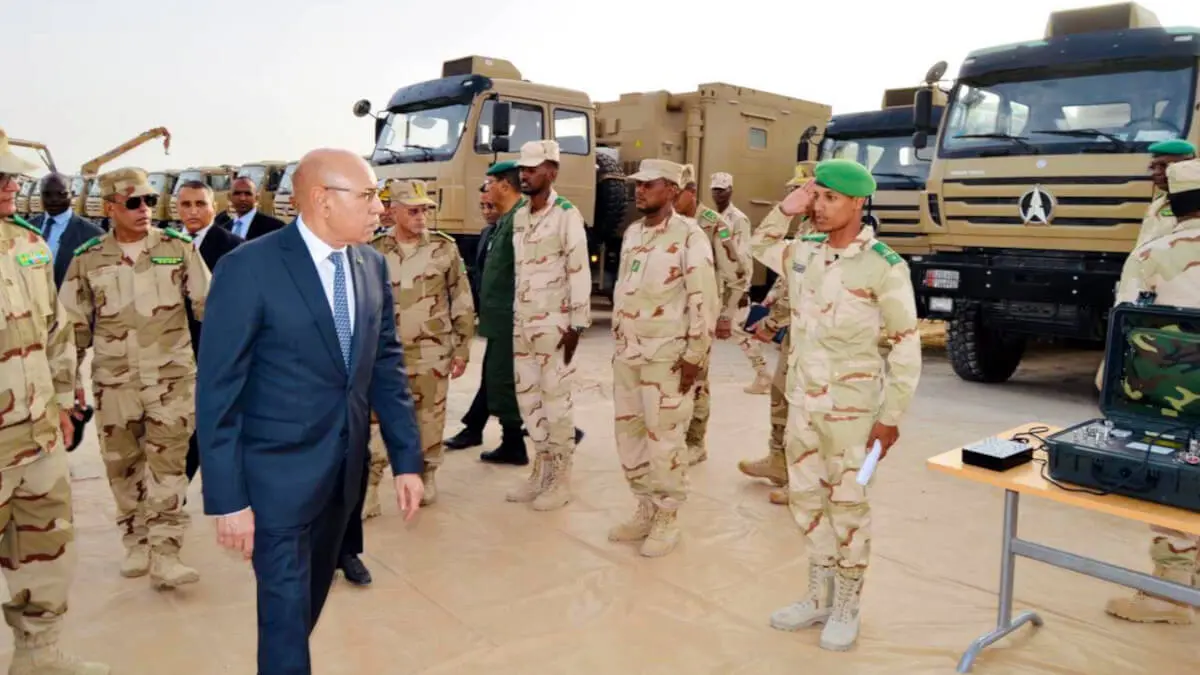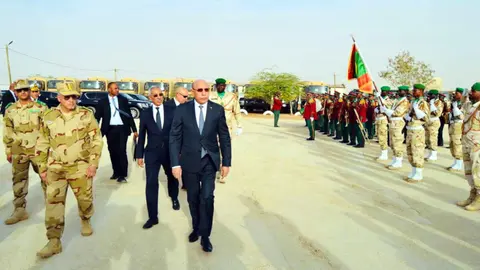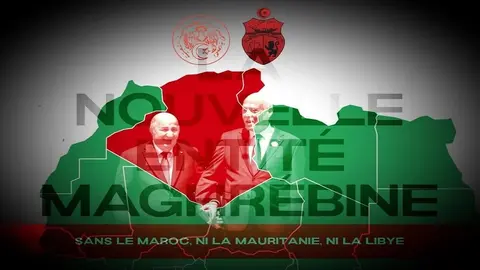Mauritania, the key to stability

Among other measures, the allies have committed to appointing a special envoy from the command in charge of this geographical area to coordinate relations with North Africa and the Middle East and to address potential threats such as migrant smuggling networks and terrorism.
This measure is particularly important for countries such as Italy and Spain, the two most affected by the unstoppable deterioration of the situation in the Sahel. Despite this, the lack of attention paid in our country to what is happening and brewing there, and the lack of knowledge, if not interest, on the part of the general population, is surprising. It seems that everything that happens there, being on another continent (from which we are only 13 kilometres away), is far away and does not affect us, and this is probably one of the reasons why it is thought that the mere implementation of reactive measures is sufficient, forgetting that if we are not proactive we will reach a point of no return.
Among the countries in the region, there is some knowledge of Mali, Burkina Faso and Niger, mainly due to the participation of our armed forces in the EUTM mission in the former. However, Mauritania is almost completely unknown, and we can safely say that the force of events has led this country to become the key player in determining the future of the region and, therefore, the consequences that we will have to face.
Mauritania, whose official name is the Islamic Republic of Mauritania, is located in the northwest of the African continent. It borders the Atlantic Ocean to the west, Senegal to the southwest, Mali to the east and southeast, Algeria to the northeast and the territory of Western Sahara to the north. The Sahara makes up 90 percent of the country's territory, and most of its approximately 4.4 million people live in the southern part of the country, where temperatures are milder. It is estimated that at least a third of the population is concentrated in the capital, Nouakchott, which is located on the Atlantic coast.
The country gained independence from France on 28 November 1960. In 2008, a coup d'état led by General Mohamed Ould Abdelaziz overthrew the government. On 16 April 2009, Abdelaziz renounced his military rank and status in order to run in the presidential elections of 19 July, in which he won the election and thus the presidency. In 2019 he was succeeded by Mohamed Ould Ghazouani in elections that are considered the first peaceful transition of power since independence.
Despite all this, and in view of what has happened in neighbouring countries, Mauritania can be considered a relatively stable country. At least for now. An important and terrible fact is that it was the last country in the world to abolish slavery, which it did in 1981. However, despite efforts to implement the anti-slavery law, this aberration continues in some rural areas, with black people, often migrants, trying to cross the country as victims.
Human trafficking remains a major challenge in Mauritania, which is both a country of origin and destination. Some Afro-Saharan groups are born into servitude. When cases of slavery are uncovered, one of the biggest problems is getting them reported, even by human rights organisations, as slavery has become a lucrative trade in human beings and this makes any reporting a very dangerous action. An increase in the number of women and girls from traditional slave castes and Afro-Mauritanian communities trafficked to the Gulf region has been detected.
Another serious problem is forced child begging in Koranic schools. Several reports indicate that Senegalese children have ended up being exploited in Mauritania's fishing industries, ending up as victims of sex trafficking or in drug production networks.
The country has become a major transit area for human trafficking, with migrants from West Africa attempting to reach Europe, mainly via the Canary Islands.
Trafficking is dominated by Mauritanian-Malian networks, sometimes involving Senegalese actors. Victims are smuggled in from near the port cities of Nouakchott, the capital, and Nouadhibou. The activity of illegal immigration networks across the country's land borders is also increasing due to a combination of the growing number of migrants and the tightening of border security in the south. However, it is limited across the country's northern borders due to the punitive militarised policy in place to prevent unauthorised movements in the northern desert areas.
Non-state armed groups linked to jihadist organisations are known to be active and frequently move across the Mali-Mauritania border, financing their operations by providing protection to nomadic populations. However, due to the low population density and lack of resources, this does not constitute a significant financial flow, and this causes them to seek alternative avenues in the control of human trafficking.
Although arms trafficking is not a worrying problem at the moment, it is nevertheless a cause for concern for the Mauritanian authorities. Weapons tend to retain their value, which encourages families to stockpile and trade them, mainly along the borders with Algeria and Morocco (Western Sahara). Similarly, as the situation in Mali has deteriorated, there has been an increase in this activity along the Mauritania-Mali border.
A country with an economy as weak as Mauritania, with serious problems controlling vast areas of its territory and remote borders, and with little capacity to police a long coastline, is clearly a perfect candidate for the operations of organised crime groups and terrorists, if it is possible to make a distinction.
Foreign actors, including groups from Morocco, Algeria, Mali, Senegal, as well as the Saharawis, are involved in Mauritania's arms, drugs and people markets. Malian criminal networks enter Mauritanian territory by collaborating with Mauritanian nationals and using Senegalese as facilitators. Jihadist groups operating mainly in Mali and Burkina Faso, such as Jama'at Nasr al-Islam wal Muslimin (JNIM), finance themselves through drug trafficking operations that run across the Mauritanian-Mauritanian border with Mali. Similarly, Mauritanian traffickers also collaborate with al-Qaeda in the Islamic Maghreb, and cross-border smuggling in northern Mauritania is linked to the Polisario Front.
As has been discussed so often, there is no better terrain for jihadist movements to expand and gain a foothold than hopelessness, poor control and difficult development possibilities. Mauritania, despite the problems lightly outlined here, remains far from the situation of neighbours such as Mali, Burkina Faso or Niger. However, it is the key player in the region. It is the dike of containment against jihadist movements that operate in close collaboration with illicit trafficking networks of all kinds.
If Mauritania follows the path of its southern neighbour, the problem will have reached Morocco's doorstep, which is the same as Europe's doorstep. A comprehensive action plan needs to be devised that covers the whole spectrum. From the military to the police, and including the social and economic spheres, in order to deny this space to al-Qaeda and Daesh. And we cannot leave aside a fundamental aspect such as human trafficking, whose tremendous reality we are experiencing today in Spain, and more specifically in the Canary Islands.
For the moment, its only function is to finance these terrorist and criminal groups, as it is probably a more lucrative activity than drug trafficking. But taking what happened in 2015 as a reference point, in the Mediterranean we must bear in mind the enormous value it can have at any given moment as a destabilising element, not only for Spain, but also for the EU. And that is probably the biggest threat, especially as we begin to see that the war in Ukraine is not only being fought in the east.



